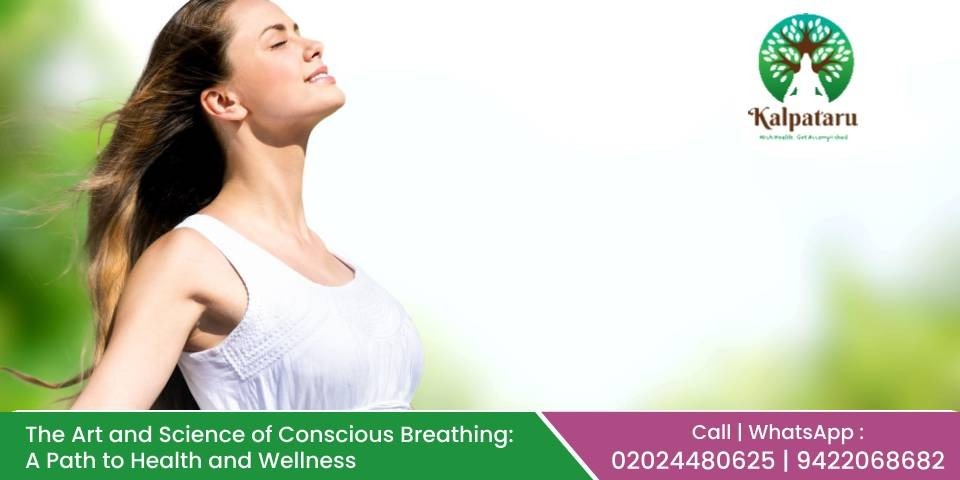In the hustle and bustle of modern life, where stress and anxiety seem to lurk around every corner, the simple act of breathing often gets overlooked. Yet, if we pause to consider it, breath is the one constant that accompanies us through every moment of our existence. In this blog, we delve into the profound impact of conscious breathing on our physical and mental well-being, drawing insights from ancient wisdom and contemporary research alike.
The Natural Breath of Children:
Observe a child at rest, and you’ll notice something remarkable – their breathing is effortless, natural, and deeply rooted in the present moment. As they inhale, their belly rises, and as they exhale, it gently falls. This innate ability to breathe with ease is something we often lose as we grow older, weighed down by the complexities and stresses of adult life. Yet, it serves as a powerful reminder of the simplicity and effectiveness of conscious breathing.
Ancient Wisdom and Modern Science:
The significance of breathing has been recognized for millennia, with ancient practices such as yoga and pranayama placing a strong emphasis on breath control for physical and mental well-being. Patanjali, an ancient Indian sage, made significant contributions to understanding the importance of breath regulation, laying the foundation for further exploration into this field.
Contemporary research has only served to reinforce what the ancients knew intuitively. Studies have shown that regulating our breath can have profound effects on our nervous system, leading to increased relaxation, improved focus, and enhanced emotional stability. This synergy between ancient wisdom and modern science highlights the timelessness and universality of the principles underlying conscious breathing.
Breath as Medicine:
Your breath is more than just air moving in and out of your lungs; it is a potent medicine for your body and mind. By consciously regulating our breath, we can tap into its healing potential and unlock a myriad of benefits. From reducing stress and anxiety to improving immune function and promoting overall well-being, the therapeutic effects of conscious breathing are undeniable.
Many diseases are prevalent, such as psoriasis, asthma, PCOD, thyroid, cancer, hypertension, hair fall, acidity, or irritable bowel syndrome. Among these diseases, there is a major list in which mental disturbances lead to physical complaints. But in all these complaints, regulating breathing can be beneficial.
Today’s fast-paced life, many psychosomatic diseases occur because the mind is disturbed, and its effect is seen on the body. When the mind is disturbed, its effect or impression is on the neurons in your brain, and due to this your hormones get disturbed. When hormones get disturbed, your immunity gets affected. So, there’s something known as the psycho-neuro-endocrino-immunological axis, which means all these factors are interconnected. Due to this, when the mind is disturbed, all these factors get affected, and various diseases are created on your immunity. Concious breathing calms down your mind. So all the further factors like nerves, hormones and immunity are positively affected by this concious breathing.
The Power of Pace:
The pace at which we breathe plays a crucial role in determining our quality of life. According to yogic philosophy, the number of breaths we take determines the length of our life. By indulging in shallow, rapid breaths, we inadvertently shorten our lifespan, whereas slower, deeper breaths have the opposite effect, promoting longevity and vitality.
For more information and treatment modalities watch our informative video
Understanding Prana: The Life Force Energy
Central to Ayurvedic philosophy is the concept of prana, often described as the life force energy that animates all living beings. Prana flows through the body via channels known as nadis, nourishing every cell and organ with vitality and vitality. Proper breathing plays a crucial role in regulating the flow of prana, ensuring its harmonious distribution throughout the body.
The Role of Pranayama in Ayurvedic Healing:
Pranayama, or yogic breathing exercises, form an integral part of Ayurvedic healing practices. These techniques harness the breath to cleanse, energize, and balance the body-mind complex. Regular practice of pranayama not only enhances physical vitality but also promotes mental clarity, emotional stability, and spiritual growth.
Integrating Breath into Daily Life:
Incorporating conscious breathing practices into our daily routines doesn’t have to be complicated. Simple techniques like deep belly breathing, alternate nostril breathing, and mindful breathing can be seamlessly woven into our day-to-day activities, providing moments of calm and clarity amidst the chaos.
Conclusion:
In a world filled with constant distractions and pressures, the practice of conscious breathing offers a sanctuary of stillness and serenity. By tapping into the innate wisdom of our breath, we can cultivate a profound sense of well-being that permeates every aspect of our lives. So, take a deep breath, and let the journey to health and wellness begin.
Dr. Manoj Deshpande and Dr. Aparna Deshpande at Kalpataru Ayurvediya Chikitsalaya™ Clinic provide the best Ayurvedic Treatment for Psoriasis & various diseases in Pune, Maharashtra. For more information about our comprehensive treatment options, or to request an appointment with the best Ayurvedic Doctor in Pune, call +919422068682 / +919764837167 / 020-24480625 or Click on Book an Appointment.

